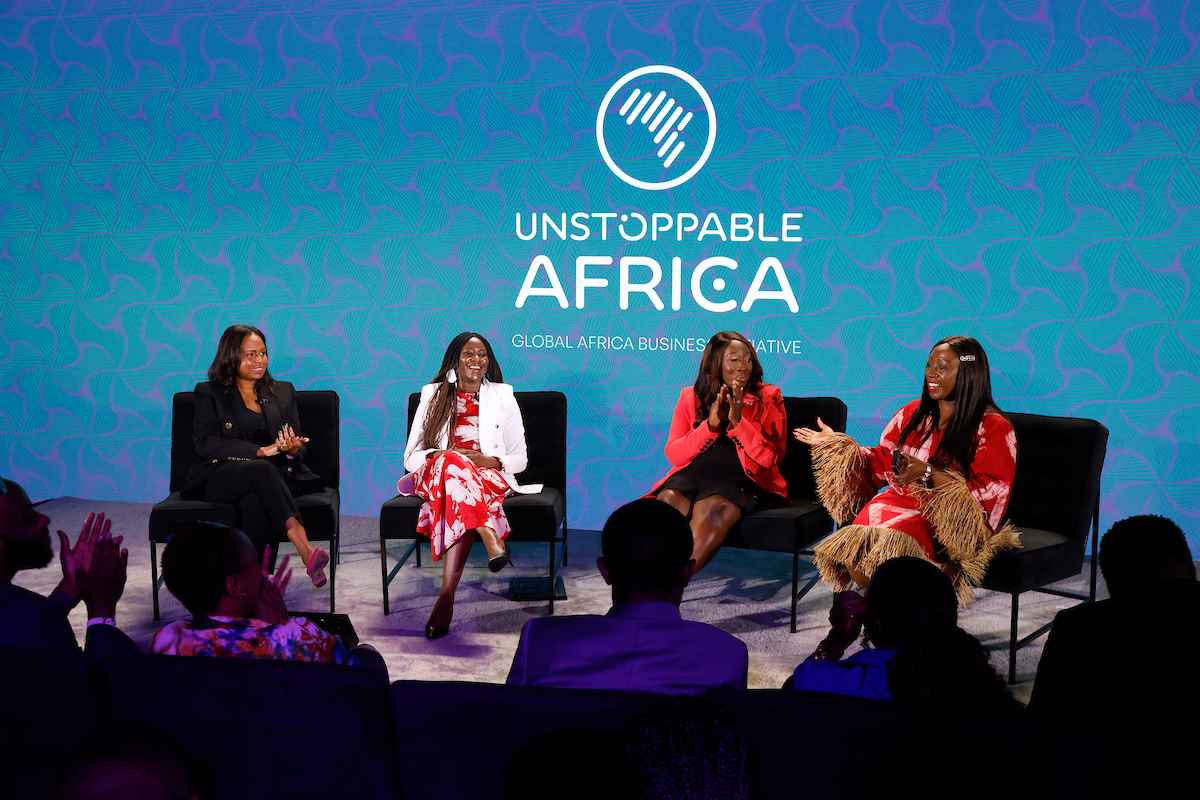During the Unstoppable Africa Summit, a remarkable group of young African women trailblazers defied conventions and unveiled a powerful narrative that reimagines perceptions of Africa’s global influence
NEW YORK, United States of America, September 27, 2023/APO Group/ —
Amidst the vibrant mosaic of Africa’s rising stars, an inspirational tapestry of narratives unfolds, challenging stereotypes and illuminating our continent’s limitless potential
On the sidelines of the United Nations General Assembly last week, during the Unstoppable Africa Summit, a remarkable group of young African women trailblazers defied conventions and unveiled a powerful narrative that reimagines perceptions of Africa’s global influence.
Meet three Incredible Africans: dynamic young African women at the forefront of reshaping our continent’s narrative on a global scale, ushering in an era that celebrates innovation, resilience, and the indomitable spirit of a continent on the brink of transformation.
As the youngest appointed senior official in the history of the African Union and the youngest diplomat in the cabinet, Chido Mpemba embodies the boundless potential of Africa’s youth. Working to amplify the voices and aspirations of Africa’s young generation tirelessly advocates for the untapped potential residing in our continent’s young minds. Mpemba acknowledges the hurdles faced as a continent, but she does so with an unshakeable belief that these challenges should never obscure the rightful place of young Africans on the global stage.
“As much as we still have our challenges in Africa that we’re trying to solve, it doesn’t mean that young Africans do not deserve to be on the global stage,” Mpemba passionately declared during the session. “We want to contribute, yes, on the continent, but we also want to contribute towards global development, and that will take us standing together as Africa. We have so many young people, and as much as they have all these ideas, many are not reaching their full potential because of the environment and lack of opportunities across the continent.”
The daughter of Ghanaian immigrants to the United States, Deniece Laurent-Mantey, Special Advisor on the Implementation of the U.S. Africa’s Leaders Summit at the U.S. State Department and former Director of Africa at the White House, brings a unique perspective that draws from her growing up with strong connections to both countries. Her unwavering commitment to fostering collaboration serves as her driving force in uniting Africans and African Americans and positioning Africa at the forefront of global policy discussions. Laurent-Mantey’s insights deeply resonate with Africa’s youth, who are eager to embrace their rich heritage while forging new global connections.
“The currency of our generation is Africa’s innovation,” she emphasized. “With the creative sector thriving and our culture, agency, talent, and creativity taking the charge, it’s crucial that we empower young leaders in this space to address pressing global challenges.”
“People are increasingly embracing Africa’s culture, diversity, and heritage, but safeguarding our ownership of that narrative is paramount. We must value our work, for when we do, the world will value us,” Laurent-Mantey added, noting that the African creative sector has not gone unnoticed by US companies.
People are increasingly embracing Africa’s culture, diversity, and heritage, but safeguarding our ownership of that narrative is paramount
Born to a prominent global women’s rights activist turned political strategist Somali-American, Areej Noor’s childhood was rich with stories of powerful women from around the world. This upbringing inspired her to build an inclusive global community of influential African women creatives with a mission to bridge the gap between African and diaspora women filmmakers and the international market through her company, Statement.
“It’s abundantly clear that the creative talent on the continent is truly unmatched,” she passionately declared. “There are incredible things happening in all fields across the creative spectrum. The real crisis we face is one of opportunity. Those who will truly impact change are the ones willing to forge strategic partnerships and collaborate in building the essential infrastructure and pipelines required to manifest the desired outcomes over the next 10, 15, or even 100 years.”
In a continent overflowing with potential, partnerships, especially with African institutions, serve as vital catalysts for progress. These collaborations pave the way for sustainability and local ownership of Africa’s narratives, opening up new avenues of growth and development that can resonate both locally and globally.
At the heart of this evolving narrative lies the incredible potential of our youth to drive profound transformation. Organizations like the Mastercard Foundation, co-creator of the Incredible Africans session and committed to securing employment for 30 million young Africans by 2030, are a clear testament to the significance of investing in the youth who will be the architects of our continent’s future.
By 2050, one in every four people on this planet will be African. This isn’t just a demographic shift; it’s a seismic transformation that will reshape geopolitics, global economics, trade, migration, and virtually every facet of our lives. With some of the world’s fastest-growing economies and a vibrant, digitally connected population, young Africans are actively reshaping the global landscape.
These exceptional young Africans are not merely rewriting our story; they are actively crafting our shared destiny. Their journeys serve as powerful reminders of Africa’s boundless promise. Their stories resonate as testaments to the limitless possibilities that await our continent.
As we celebrate these extraordinary Africans, their aspirations and accomplishments paint a vivid portrait of a thriving and dynamic Africa, one that rightfully demands the world’s attention. Their success stories inspire us all and remind us that our continent’s future is as bright as the dreams we dare to dream.
Incredible Africans was moderated by CNN correspondent Stephanie Busari. Watch the session here (https://apo-opa.info/3ESOSif).
Distributed by APO Group on behalf of The Mastercard Foundation.


 Energy3 days ago
Energy3 days ago
 Business3 days ago
Business3 days ago
 Business3 days ago
Business3 days ago
 Energy2 days ago
Energy2 days ago
 Business3 days ago
Business3 days ago
 Business3 days ago
Business3 days ago
 Energy3 days ago
Energy3 days ago
 Energy3 days ago
Energy3 days ago












